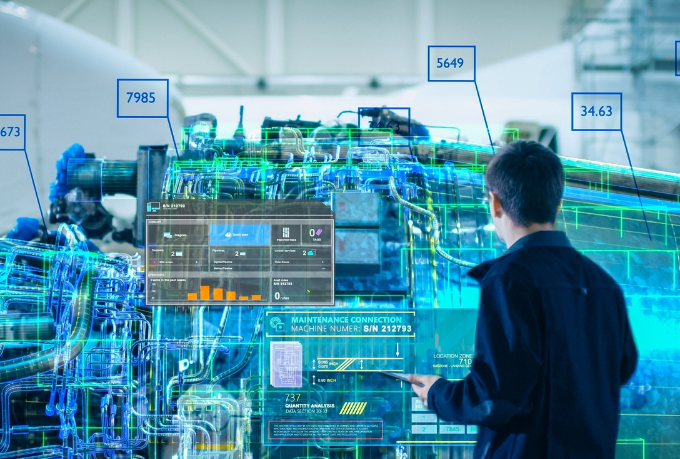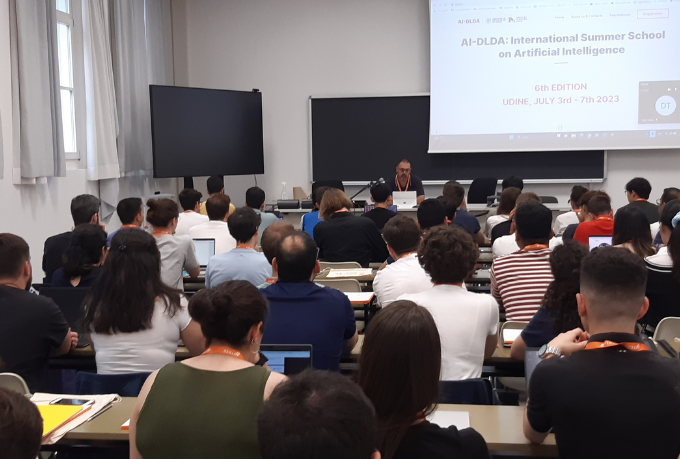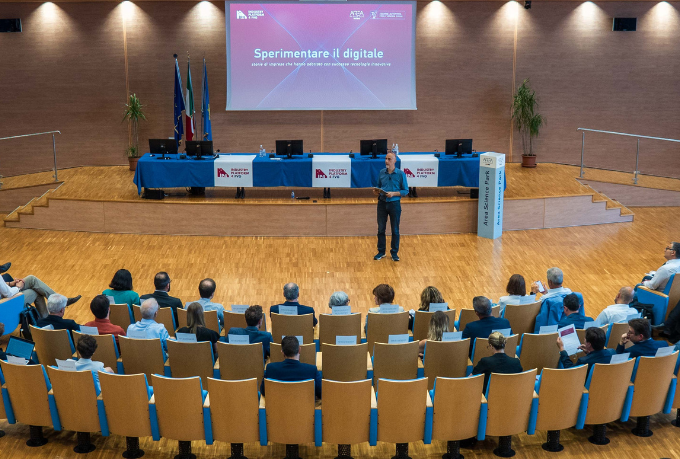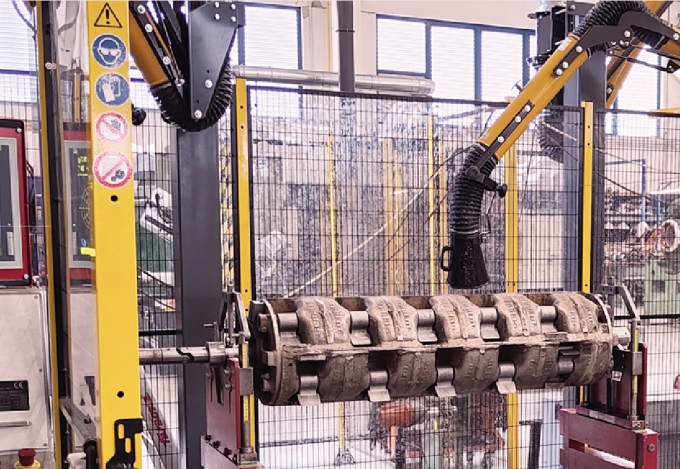
5 April 2023
Region-wide development powered by the ecosystem of scientific computing and data
by Gianluigi Rozza, Professor of Numerical Analysis – SISSA of Trieste
From climate to geophysics, from pharmaceuticals to genetics, from industry to medicine, to infrastructure: there are many possibilities for the application of supercomputing to research, businesses, and society.
All of this is available thanks to Leonardo, the supercomputer ranked fourth on the Top 500 list of the fastest computers in the world, housed at Bologna’s Tecnopolo and launched in late November 2022. This is a major European infrastructure that guarantees Italy a prosperous future for developments inherent in supercomputing, data science, artificial intelligence and more generally the digitisation of processes, services and products.
Indeed, 50% of the computing power generated by Leonardo will be allocated to Italian research institutes and universities, obviously also in conjunction with joint projects with the industrial landscape, from large enterprises to start-ups and small businesses, while the rest will be used by European researchers.
The project, managed by CINECA and supported by the Ministry of University and Research (MUR), the Emilia-Romagna Regional Authorities and Europe, relies on a whole range of partners, including SISSA of Trieste, along with the National Institute of Nuclear Physics (INFN).
SISSA’s role as a founding partner of the Leonardo project, with established international experience in numerical simulation in materials science, applied mathematics, astrophysics, and physics and chemistry of biological systems, will in fact afford an important opportunity for the regional territory as well. Reinforcing the key role of supercomputing in Friuli Venezia-Giulia and the Triveneto region is SISSA’s participation, as part of the RRF, in the high-performance computing national centre, which was also inaugurated in Bologna only two days after Leonardo’s launch. Bologna has 10 “spokes” and about 50 partners, including the CNR, SISSA, the University of Trieste and major companies, including Fincantieri.
A considerable number of diversified educational initiatives also contribute to forming a real ecosystem around scientific computing, such as a profession-building master’s degree in HPC (by SISSA and ICTP), a bachelor’s degree in data science and scientific computing (promoted by the University of Trieste, University of Udine and SISSA), new doctoral programs, including the one in data science organized by SISSA, the new institute of data science and artificial intelligence created with Generali, involving SISSA with ICTP, University of Udine, University of Trieste and MIB-Trieste School of Management.
In addition to the research and education ecosystem, another element that comes into play is innovation, as it is a key enabler for the development of the area that leverages the enhancement of research and the transfer of technology and knowledge.
To this end, I would like to mention at least two initiatives from the Triveneto region that complement the offerings and activities already in place through IP4FVG and broaden its fields of interest. The first initiative is the Centre of Competence for Industry 4.0 SMACT, involved in the IP4FVG steering committee, which includes Area Science Park and LEF, as well as universities and large companies in the FVG region (Wartsila, Danieli, Electrolux, Brovedani). SMACT is in the process of completing the implementation of a Live Regional Demo (Odyssea) deployed throughout the territory and dedicated to process or product digital twins.
The second initiative is iNEST, funded under the RRF. Ecosystems of Innovation scope. It aims to create 3 “spokes” across the regional territory (one for each university) dedicated to topics related to industry, the territory and its infrastructure, the sea, and, again, emerging technologies in computing, simulation, data, artificial intelligence and digitisation leading to a major plan for recruiting additional resources for universities and to cascading calls for tenders for innovation projects with companies, a key element at the heart of this initiative, which aims to ensure ever greater competitiveness for our territory through the enhancement of research, turned into innovation.
As can be seen, the subject of computation, complemented by data science and artificial intelligence, forms an important framework for the development of digital twins in a paradigm where integration between complex models and data is crucial.
Hopefully, all of these initiatives will be fully leveraged to ensure development, cohesion, employment and competitiveness for the region, while helping consolidate an innovation ecosystem that will strengthen the science system and make the region more attractive.















